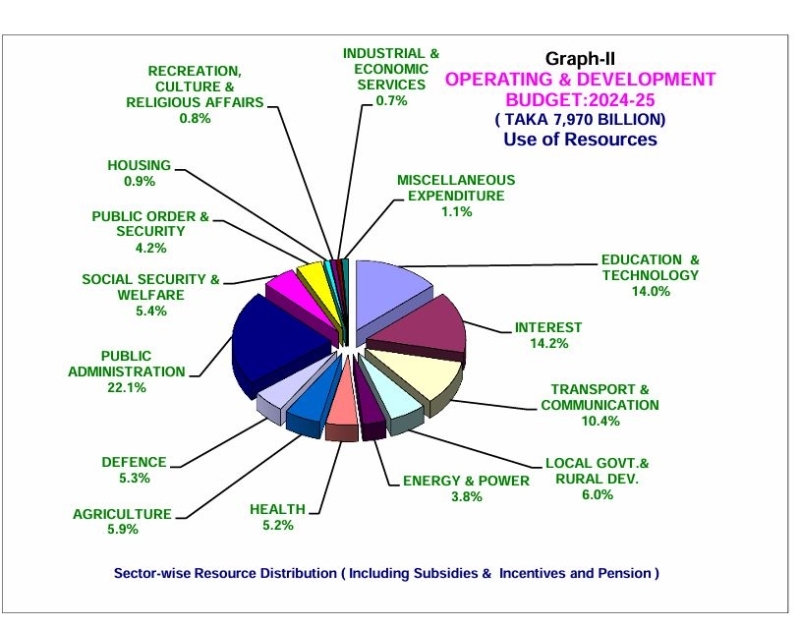- Stocks end week sharply lower as DSE, CSE indices tumble |
- 'Not all collections in the road transport sector is extortion': Sk Rabiul |
- Zubaida, Zaima take iftar with orphan students |
- Dhaka ranks second among world’s most polluted cities Friday |
- Dhaka to maintain ties with all countries with dignity |
From economy of the few to one of all

The use of resources; From the current budget document.
How to revive the fragile economy of Bangladesh left by the Sheikh Hasina regime was the topic of discussion at a meeting organised by the Bangladesh Policy Discourse at the Reporters' Unity auditorium in Dhaka City on Saturday 21 September.
Speakers who took part in it put maximum emphasis on rooting out corruption and bring back tens of thousands of crores of money laundered abroad. They called for turning the economy self reliant from its present dependence on external support.
They made a plea to stop the plunder of people's money in the name of quick rental power and called for restoring energy security by reversing the process of its external support as of now. National organisations like the Bangladesh Petroleum Exploration Company (BAPEX) of the Bangladesh Petroleum Corporation to handle all gas and oil exploration and development activities.
The speakers called for making all secret energy deals public and undoing conditions that are harmful to the national interest. All default bank loans should the realised and the corruption of sponsor directors of Banks should be controlled giving proper weightage to the depositors who own most of funds of Banks.
They noted slight improvement in the macroeconomic situation in the form of a stable foreign exchange rate which even of late have come down at the kerb market without requiring intervention from the central bank which spoke of honesty and efficient management that is possible.
The efforts of the fallen political regime was to make its rule permanent by creating a political class of beneficiaries at the expense of the masses who lost wealth, money and were pauperised. In reorganing the economy emphasis should be on creation of wealth from within instead of relying on mega projects that brought mega corruption in the last 16 year. Some speakers spoke against creating dependence on World Bank and IMF loans.
They also called for making the economy sustainable without depleting the natural resources base and creating an economic order in which none will be left behind to achieve the sustainable development goals.

